The independence of Madagascar
A time after the suppression
Madagascar had been a land of the oppressed for many years. Slave trade, cruel Merina kings and later the French colonial powers left their mark on this country and dug deep wounds into its soul. On June 26, 1960, when Madagascar declared the Status of an independent republic under the social democratic president Philibert Tsiranana, this was accordingly a particularly great moment. Many changes were now coming to the Malagasy, although in some cases this did not mean that the country was truly turning away from the past and looking toward a new and positive future. The first phases of independence also brought numerous pitfalls and stumbling blocks for Madagascar. What exactly these were and what lessons could be learned for the future are presented below.
The First Republic (1960 - 1972)
The first republic under President Tsiranana did not yet think of making a great departure from French traditions. It became a anti-communist government on the French model and most of the wealthy French still living on the island were more than in agreement with this development. So it came then also that the political exercise of power to a Re-election of President Tsiranana in 1965 came. Tsiranana represented a kind of father figure, which was similar among many neighboring states on the African continent at the time. Nepotism and corruption within the government could be kept secret for long stretches, thanks in part to blind trust in the benevolent father figure of Tsiranana. The opposition was present, but because of its different motivations and goals, it was highly fragmented and thus more or less powerless. The consequences of Tsiranana's corrupt governance were felt above all by Madagascar's poorer population strata, who repeatedly experienced supply bottlenecks due to the poor economic situation. Famines and epidemic outbreakswhich were now not uncommon, had not even occurred before under the rule of the French colonial powers. Left-wing protests and numerous uprisings, which were initially put down with bloodshed, were the result. Confidence in the government was lost.
Military dictatorship (1971 - 1975)
As the uprisings grew in scale, the island's government was replaced in 1972 by a Military coup disempowered. General Ramanantsoa imposed martial law on the island, urged the prime minister to resign, and caused the National Assembly to be dissolved. For the next three years, Madagascar was now to be ruled by a military dictatorship become. This development changed the country's foreign policy almost dramatically: ties with France were increasingly cut, new connections with the USSR on the other hand created. The economy went steeply downhill and the chaotic conditions in the country worsened. In 1975, the affairs of state were handed over to then Interior Minister Richard Ratsimandrava who, however, was shot dead in the street only a few days later as a result of a conspiracy. Gilles Andriamahzoa and his Revolutionary Council now came to power. They had firmly resolved to change the previous downward course, to introduce new democratic structures and also to change the economic situation, however they were prevented by a military coup from. The former foreign minister, who Navy Admiral Didier Ratsiraka, now took power.
The Second Republic (1975 - 1991)
Even though Didier Ratsiraka had come to power in a military coup in Madagascar, only a short time later he was clearly elected in a popular referendum. Elected President of the Republic of Madagascar. As a result of this referendum, the Madagascans got a new constitutionwhich was now Marxist-Maoist in orientation, in complete contrast to earlier conditions. Ratsiraka was in close contact with dictator Kim-Il-Sung and allowed himself to be strongly influenced by him in his governance. Contact with the French was completely broken off under Ratsiraka, Madagascar left the French monetary union and the industrial enterprises on the island were nationalized.
While the island became increasingly isolated from a foreign policy perspective, there was clear unrest at home due to economic volatility. Developments on the world market had also led to significant upheavals in Madagascar: The former export hits such as vanilla, coconut or cloves were suddenly severely depressed in price, while oil prices rose dramatically in return. This was the starting signal for a new economic system in Madagascarwhich was to prove an extremely existential achievement after only a short time. This is the so-called Fokonolona system, a form of self-government in which classical forms of village administration were combined with elements from Marxism. The island of Madagascar was transformed into more than 11,000 fokonolona divided and each of these districts was assigned a Fokontany, a kind of mayor. Even today, the traces of these self-governments can be discovered in Madagascar: The houses of the Fokotany have a blue roof and stand out accordingly over clearly from the mass.
In the next elections in 1977, the party was won by President Ratsiraka The government's AREMA party was the only one to stand for election, so no one was particularly surprised by the victory. Resentment among the population grew: Epidemics, epidemics, financial problems, famines and natural disasters brought Madagascar one crisis after the next and yet Ratsiraka was again confirmed in office in the next elections in 1982. Time and again, it was also reported that the president and his most loyal supporters were unlawfully enriched in the mineral resources of the countryThey sold valuable raw materials and precious stones on their own account and transferred the money they earned to various accounts abroad. It is therefore not surprising that Ratsiraka, the president of one of the poorest countries in the world, was unmistakably one of the richest people in the world at the beginning of the 1980s. In the course of time, many Indians, Pakistanis and also Comorians settled in Madagascar. Since they proved to be good businessmen and contributed a not insignificant part to the economic continuity of the island, envy grew among the indigenous population and time and again there were brutal attacks. In the next elections in 1989, AREMA and President Ratsiraka suffered some heavy losses, but still managed to secure the majority of votes. Accusations of manipulation became louder and louder and the president came under increasing pressure. This may have persuaded Ratsiraka to To accept conditions imposed by the World Bank and the IMF and to promote economic liberalization. of his country. However, this could not calm the growing unrest on the part of the increasingly strong opposition, and strikes and large mass demonstrations occurred repeatedly. In 1991, several hundred thousand people gathered for a peaceful demonstration to make their voices heard for a change of power. However, the peaceful procession of people was bloodily put down: Shots and hand grenades thrown from a helicopter caused the death of hundreds of people. As a result Ratsiraka was stripped of his powers. Although he was still officially president of Madagascar until 1993, he held this office only from a formal point of view. He then went into exile to France.
The Third Republic (1993 - 2010)
Madagascar's third attempt to become a free, independent, and democratically stable republic began in 1993 when the next free elections Albert Zafy from Ambilobe declared him the winner. Zafy was from northern Madagascar and had been a heart surgeon before his political career. He had also chaired the transitional Forces Vives government. The Malagasy had high hopes for their new president, but were once again bitterly disappointed. On the one hand, the political inexperience Zafys already after a short time in office and on the other hand he abused his powers and turned out to be exceedingly corrupt. In 1996, a vote of no confidence in the government was held, and Zafy was voted out of office. In the subsequent elections, former president Didier Ratsiraka, who had returned to Madagascar from his self-imposed exile, stood for election. He succeeded in regaining the trust of the population, and was elected re-elected President of the Republic. A short time later, in 1998, another vote of no confidence followed, but Ratsiraka was able to win it. Subsequently he had the constitution of Madagascar amendedin order to gain even more power. He now planned to establish a republic in the Marxist-ecological sense. In the next elections in 2001, Ratsiraka and his party were once again able to hold their own, but now once again Rumors of election manipulation and fraud which led to renewed unrest among the population. In the course of these riots Marc Ravalomanana as opposition leader to head the government. He knew the armed forces were behind him, and he underpinned his rise to power by Ratsiraka back to his French exile banished. Ravalomanana came to power out of turn, but he quickly won the trust of the Malagasy people. He was confirmed in office in the 20006 elections. The governments of other countries also recognized Ravalomanana as a democratic president. an. This was a great success for trade relations and the economy in Madagascar.
However, the tide turned again only a short time later when a television station critical of the government was shut down for broadcasting an interview with the exiled dictator Ratsiraka. Several demonstrations, followed by assaults and looting, led to some dramatic clashes with the police, during which live fire was repeatedly used. A total of 120 people lost their lives in this wave of rebellion against the government. However, the protests were only the beginning of a new process of upheaval, because numerous accusations have now been made that Ravalomanana allegedly tried to enrich himself with state property. The great voice of the protests against President Ravalomanana, came from the throat of Andry Rajoelinawho was actually the acting mayor of the city of Antananarivo. Rajoelina was a media entrepreneur and former disc jockey. He also owned the television station that had broadcast the interview with Ratsiraka, which was critical of the government. Thus, it could be assumed from the beginning that Rajoelina also had a personal motive against Ravalomanana. As the unrest grew stronger, the military again felt compelled to intervene.
President Ravalomanana then transferred his powers to the military and then fled to South Africa. The way was thus clear for Rajoelina. According to the constitution, the 34-year-old was actually too young to take office as president, but few people were interested in this at the time. In March 2009, Rajoelina was thus elected as the new president of the country.. This had clear consequences for the economic situation in Madagascar. Because the international powers did not regard Rajoelina as a democratically elected president, they severed their trade relations with Madagascar to the greatest possible extent and directed an isolation of the island one. This had serious consequences in many different sectors: Important aid organizations withdrew their support, tourists were warned by their foreign offices against traveling to Madagascar, and the economy on the island stagnated even more. There were also clear negative consequences in terms of environmental protection: Various national parks were now without permanent guards and numerous gangs and poachers took advantage of this to hunt endangered species or to cut precious woods. Foreign attention was now only drawn to developments in Madagascar by negative headlines. Again and again it was reported by impending famines and an imminent complete collapse of the health and education systems.. With this tragic end of the third republic in Madagascar, which had actually begun so positively with the presidency of Ravalomanana, ends again one of the dark chapter in the history of the country Madagascar.









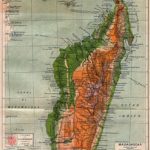


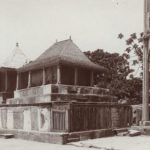
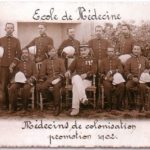
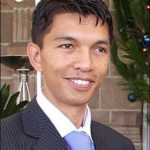
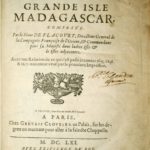
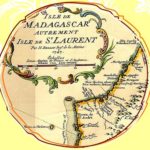

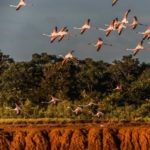

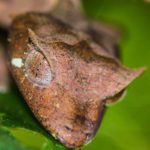

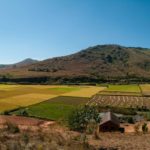
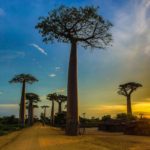




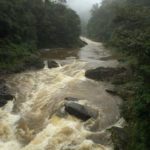
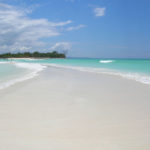
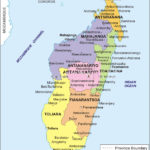












 Villa Sibylle Antananarivo (Madagascar)
Villa Sibylle Antananarivo (Madagascar)

